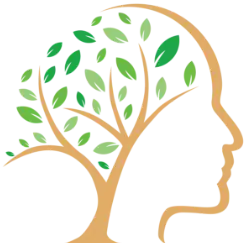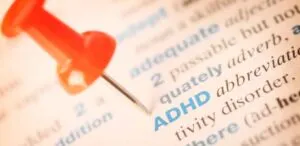ADHD comes in three basic types:
- Predominantly inattentive presentation
- Predominantly hyperactive/impulsive presentation
- Combined presentation
Let’s go through each of them in more detail so you can learn about your Child’s Psychological situation and know how to support them.
1. Predominantly Inattentive Presentation:
The inattentive presentation describes problems with organization, focus, and staying on task. It is challenging for a person with various forms of ADHD to complete a task, pay attention to the details, or follow directions or conversations.
The individual gets easily distracted or overlooks small details of daily life activities. If the following symptoms are present in a child he could be diagnosed with predominantly inattentive presentation:
- Does not pay close attention to details
- Does careless mistakes in tasks at work or school
- Have trouble staying focused on any activities
- Does not appear to be listening when talking to them
- Does not follow through on instructions
- Does not complete the given tasks such as schoolwork
- Has problems organizing duties and work
- Avoids or dislikes tasks that require persistent mental effort
- Misplaces things needed for daily life, including smartphones, wallets, and keys
- Forgets daily tasks, such as doing chores
2. Predominantly Hyperactive-Impulsive Presentation:
The individual chatters a lot and fidgets. Long periods of silence are challenging. Younger children may continually run, jump, or climb. The person has trouble controlling their impulses and is restless. Impulsive people may speak out of the blue, take things from other people, or regularly interrupt others. The person finds it difficult to wait their turn or listen to instructions. For some people, being impulsive makes accidents and injuries more likely.
For a diagnosis of this type of ADHD, the following symptoms occur frequently:
- Fidgets with hands or feet
- Nervous movement while seated
- Unable to remain quiet
- Talks too much
- Runs around jumps, or climbs in places where it is not appropriate
- Unable to do activities quietly
- Interrupts others while they are talking
3. Combined type
This kind of ADHD is diagnosed when both the inattentive and hyperactive/impulsive conditions are present in a person. The symptoms of both types would be in the child.
Causes of ADHD
Scientists have been unable to identify the precise causes of ADHD. Recent studies appear to link genetics and biological factors with ADHD.
In addition to genetics, researchers are looking into other possible causes and risk factors, including:
- Brain injury
- Usage of alcohol and tobacco during pregnancy
- Premature birth
- Low birth weight
- Exposed to pollution during pregnancy or at an early age
Methods to Diagnose if Your Child Has Various Forms of ADHD
Determining whether a child has ADHD contains a multi-step process. There is no single test for various forms of ADHD, many other conditions such as anxiety, depression, and sleep issues might also show symptoms that are similar to ADHD. Diagnosing various forms of ADHD requires a careful review of symptoms. A qualified psychological health professional, typically a psychiatrist or neurologist, or clinical psychologist, can assess the individual. The evaluation is comprised of three steps:
1: Verify the presence of symptoms.
2: Confirm that the symptoms are not the result of other psychological health issues
3: Determine the presence of co-existing psychological health disorders, such as depression, anxiety, or bipolar disorder.
Technically, to be diagnosed with ADHD inattentive type, adults must have the following:
- At least five or more signs of inattention
- Symptoms must be present for at least 6 months
- Symptoms are not due to another mental disorder
- Symptoms must interfere with or impair one’s social life.
- Before the age of 12, some signs were apparent
Treatments:
1. Preschool-aged children
The majority of the time, counseling and medications are used in the treatment process of ADHD. The suggested first-line technique for preschoolers and younger kids comprises behavioral techniques in the form of parent management training and school intervention. Parent-Child Interaction Therapy (PCIT) is an evidence-based therapy designed to help young children with ADHD and the disorder of oppositional defiance. The only FDA-approved treatment for various forms of ADHD in preschoolers is amphetamines.
2. Adults
There are numerous methods for treating adults, but a combination of medicine and behavioral therapy achieves the best outcomes.
- Behavior modification. Adults with ADHD may be treated using a variety of methods. Cognitive Behavioral Therapy (CBT) assists patients in identifying problematic habits and developing and putting strategies into practice like self-regulation, behavior change, and goal-achieving. Patients who use cognitive behavioral therapy (CBT) learn to recognize automatic or unreasonable thoughts that could lead to bad behavior and replace them with constructive ideas and actions.
Another type of treatment is acceptance commitment therapy, which focuses on empowering people to follow their own values and act in ways that are consistent with those values rather than attempting to alter the person.
Although there are other applications designed to improve self-management, they are not yet widely accessible. Adults with ADHD may benefit from group therapy, particularly women.
- A relatively new strategy that has gained popularity in recent years is coaching. By offering feedback, suggestions, and encouragement, coaches assist persons with ADHD in managing the difficulties of daily living and leading them to focus on finding their own solutions to issues.
Novus Beginning Psychiatry: Your Path to Health and Wellness Starts Here!
We understand that navigating the complexities of mental health can feel overwhelming, but you don’t have to face it alone. At Novus Beginning Psychiatry, we’re here to support you every step of the way. Whether you’re seeking therapy, medication, or a combination of both, our compassionate professionals are dedicated to helping you find the path to a happier, healthier life.
Our highly skilled psychiatrists are experienced in a wide range of mental health conditions, including anxiety, depression, bipolar disorder, OCD, PTSD, ADHD, autism, different types of trauma, and more. We offer evidence-based therapies that have been proven effective in helping individuals overcome their challenges. From cognitive-behavioral therapy (CBT) to couples/family therapy, we utilize the most up-to-date techniques to empower you on your healing journey.
We also recognize that medication is vital in managing certain psychological health conditions. Our team includes Dr. Nibras, who is a board-certified psychiatrist well-versed in medication management. He works closely with you to develop a comprehensive treatment plan, as we believe in the power of personalized care.
So, take the first step towards a brighter future. Contact us today to schedule an appointment. Our friendly staff is ready to assist you in finding a convenient time to meet with our dedicated professionals. Call (832)856-4718 and let us help you take charge of your mental well-being.
Medication Management For Psychiatric Wellness
At Novus Beginning Psychiatry, we’re dedicated to helping you unlock the power of effective medication management. Our team of psychiatrists has years of experience and understands the importance of finding the right balance for your mental health journey. We offer personalized and compassionate care, creating medication plans that are tailored to your unique needs. Our understanding of psychopharmacology allows us to provide the most advanced and evidence-based treatments available.
Our goal is to help you by providing the right medications to enhance your therapy outcomes, reduce your symptoms, and improve your overall well-being. We want to be your trusted partner on the path to a brighter future. Please don’t hesitate to contact us at Novus Beginning Psychiatry to experience the transformative effects of our comprehensive medication management approach.
Who is Dr. Nibras?
Dr. Sohail Nibras is a double board-certified psychiatrist in child, adolescent, and adult psychiatry. He completed his education at Saint Louis University and the American University of Integrative Science. He excels in treatments based on psychiatric care and therapeutic sessions and has experience treating dual psychiatric and substance use disorders. He is an assistant professor at the Menninger Department of Psychiatry and Behavioral Sciences at Baylor College of Medicine in Houston, Texas. He serves as an attending psychiatrist at Texas Children’s Hospital. He trains future psychiatrists and engages in scholarly research projects.
Visit us
Come and visit us at one of our locations in-person or meet us via telepsychiatry/online!
We’re here to help in Texas, ready to meet you in person. If you’re unable to make it in person, don’t worry, we’re also available online, so you can meet us easily from the comfort of your own home. Whether you prefer to see us face-to-face or connect with us online, we’re here to assist you every step of the way.
Address in Sugar Land
120 Eldridge Rd Suite D, Sugar Land, TX 77478
Address in Katy
23410 Grand Reserve Drive, Ste. 401 & 402 Katy, Texas 77494



